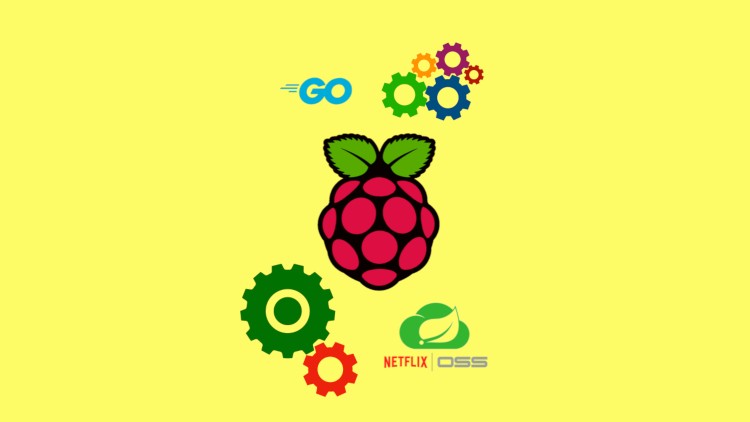Beginners guide to microservices with Go, Spring and RaspPi

Why take this course?
🌟 Course Title: Beginners Guide to Microservices with Go, Spring, and Raspberry Pi 🌟
Course Headline: Home-made Monitoring System with Raspberry Pi and Microservices 🎓
Course Overview:
In this comprehensive course, Maksymilian Żurawski will guide you through the intricate world of microservices architecture using Go (Golang) and Spring frameworks, and how to implement them on a Raspberry Pi. This is not just a technical journey; it's an exploration of the synergy between these technologies and the power of DIY hardware in creating robust, scalable applications.
What You'll Learn:
-
Introduction to Microservices: Understand the paradigm shift from monolithic applications to microservices and how they can solve problems more efficiently.
-
Combining Go and Spring: Explore the strengths of both frameworks and learn how to leverage them in concert to build lightweight, yet powerful services on your Raspberry Pi.
-
IoT Integration with ESP8266: Discover how to integrate simple sensors with ESP8266 Wifi modules to collect diverse measurements across different locations.
-
Building a Dashboard & More: Develop a user interface that allows for easy interaction with your microservices, including search functionality and basic configuration options.
-
Dockerizing Your Application: Learn the basics of Docker and containerization to compose your entire microservice application into containers, simplifying deployment and management.
Key Course Highlights:
-
🚀 Hands-On Learning: Engage with real-world projects from the outset, building a home-made monitoring system that you can showcase and build upon.
-
🛠️ Practical Skills: Acquire essential skills in microservices architecture, Go programming, Spring Boot, IoT with ESP8266, and Docker containerization.
-
🎓 Real-World Application: See how a Raspberry Pi can be transformed into a key component of a modern, scalable application.
Course Structure:
-
Microservices Fundamentals: What are microservices and how do they differ from traditional monolithic applications?
-
Setting Up Your Development Environment: Preparing your Raspberry Pi and getting the necessary software tools ready.
-
Introduction to Go Programming: Learn the basics of Go and understand its role in your microservices architecture.
-
Exploring Spring Framework: Dive into the Spring ecosystem and how it complements Go in a microservices context.
-
IoT with ESP8266: Integrate sensors and ESP8266 modules to collect data that your microservices can process and analyze.
-
Building Microservices: Develop individual services that communicate with each other, handling different aspects of the application.
-
Creating a Dashboard Interface: Design and implement a user interface for easy interaction with your microservices.
-
Dockerization and Deployment: Containerize your application using Docker, and learn how to manage your services as containers.
-
Final Project: Combine everything you've learned to create a complete home-made monitoring system.
Why Take This Course?
If you're looking to expand your skill set into the realm of microservices, containerization, and IoT with hands-on projects that you can use in real-world scenarios, this course is for you. Whether you're a beginner or an experienced developer wanting to broaden your expertise, this course will provide you with the knowledge and tools to build and manage robust applications on Raspberry Pi hardware.
Join us and embark on a journey to master microservices architecture with Go, Spring, and Raspberry Pi. Let's create something amazing together! 🚀📚✨
Loading charts...